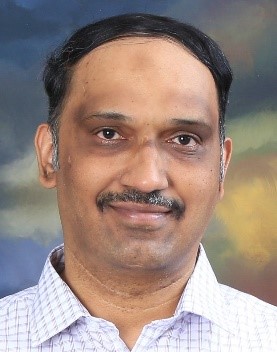the place where Paleontology and Paleoanthropology meets Philately
Fossils exhibition by Ramu Machapalli Srinivasa
The term "Fossilia Petrificata" (Latin) has been used to describe the petrified organisms found on the Earth's surface. Many were laid down millions of years ago and due to erosion are being found near the surface. The study of these fossil remains has helped to show how different species have developed and to show how evolution has occurred in different species, and is helping us to understand why some species died out.
About the Author:
 |
| Ramu Machapalli Srinivasa |
Ramu Machapalli Srinivasa FRPSL, FPCI, by profession for last 25 years has worked with various Multinationals
as HR and Admin professional including Ericsson, Tata BP Solar and Tata Teleservices
to name a few and took a career break during 2021 to pursue his passion.
He is a Passionate stamp collector for close to four decades.
He has participated in several state, national and international Philatelic exhibitions.
He has traveled various countries and India extensively in love of philately.
He has conducted several workshops, guest lectures on various topics in Philately.
Ramu is Life Member of Karnataka Philatelic Society, Philatelic Congress of India,
and Royal Philatelic Society, London.
Ramu's exhibits collected the following Awards and Accolades:
- Gold plus Jury Special prize - Aeropex 2019, Adelaide
- Large Vermeil Stockhomia 2019, Stockholm
- Vermeil at London 2022
In addition to this he is a Bibliographer who collects first editions of books related to Mysore and Kannada and houses a library containing close 3.000 books and magazines at home. His other collection interests include stamps on space, minerals, fossils, Herpetology, Entomology and Ornithology. His bird’s stamps collection is one of the largest collections in India which is close to 15.000 different stamps on birds across the world.